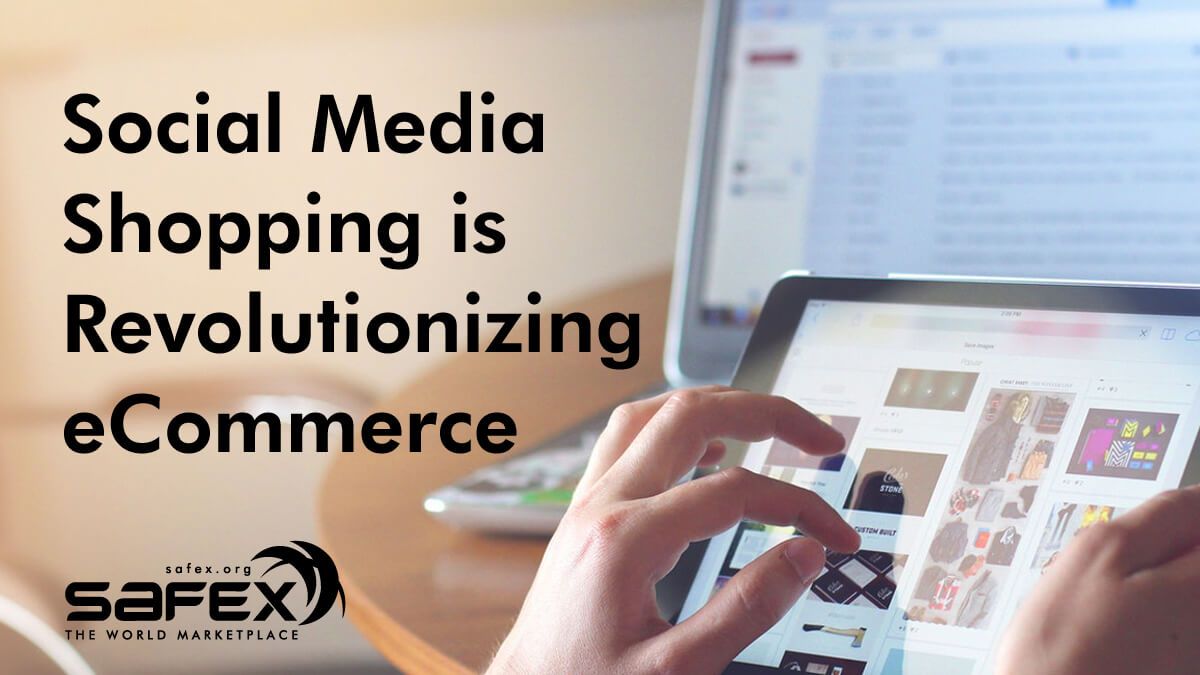Social Media Shopping is Revolutionizing eCommerce and That’s a Fact
The combination of social media and eCommerce resulted in a new and promising branch - social commerce. Find out how to use it to your advantage.

We’re all witnessing the flourishing of the eCommerce sector year after year. Not only are brands expanding their stores from brick and mortar to the online world, but customers are also feeling more comfortable shopping from the comfort of their homes. In addition to that, social media have become an integral part of so many lives worldwide, and we can also see some big names in this industry improving over time. We see today how combining these two resulted in a completely new branch called social commerce. Fantastic opportunities for eCommerce businesses have come up because several social media have successfully implemented some eCommerce elements to their platforms. Consequently, we decided it would be beneficial for retailers to get familiar with the subject and consider joining social media shopping channels.
What is social media shopping?
The meaning of social media shopping (or social commerce) is pretty straightforward; it refers to businesses selling their products through social media platforms. Social media marketing only allows you to market your eCommerce business using your social media content (to drive traffic to your online store). On the other hand, social commerce allows your customers to complete their purchase without leaving the social media platform. Some of the best-known features of social commerce include:
- Shoppable stories and posts that provide a direct purchasing opportunity,
- CTA (or “Buy”) buttons within posts, allowing users to complete their purchase without leaving the app,
- Peer-to-peer selling and purchasing connects individuals who are looking to sell their items with potential buyers, and
- Social business applications and modules that offer excellent benefits like analytics to companies that join the platform.
How is social media shopping revolutionizing eCommerce?
Each social media platform labels eCommerce differently. However, they share some fantastic features and simplify the process of picking and buying a product for consumers. Let’s see what the most important benefits of social media shopping for both business and consumers are:
- All the visuals
The visuals are becoming more critical, as people tend to do more visual research than the textual one. That’s why online retailers need to provide some high-quality visual content. Even though eCommerce websites already offer their products visuals, social media platforms offer their upgraded version. Take Instagram as a good example; it is the visual treasury. Apart from businesses being able to showcase their products straightforwardly, Instagram significantly improves the chances of your products being seen by a broader audience. Many people turn to this social media before making a purchase, which makes an excellent opportunity for companies to offer high-quality visuals that represent their products in the best light possible. Users who scroll through their feed or the Shopping tab will run into something they like, and one-click later get a product description, price, etc. - Less friction in the purchasing process
People who search through social media platforms before shopping used to go through an “agonizing” process of finding something they like and then searching for it again on an eCommerce website. Now that platforms such as Facebook and Instagram offer shop features, consumers don’t have to leave their app to buy a product. Instead of providing only a link to their website, companies can implement shoppable posts on social media networks. That way, users can click on a post they’re interested in and get all the information they need before making a purchase and a direct link to the product page on a website.
Above all that, social media users typically use their mobile phones to scroll through their app of choice. Shoppers don’t feel like switching from their phones to laptops when making a purchase. Social media platforms are already mobile-friendly, which once again makes them a smart choice for eCommerce businesses. - Better connection between businesses and consumers
Social media networks were initially created to connect people around the world. Today, these platforms serve many other purposes, but the connection persists and is now expanded to the business-customer relationship. First of all, businesses can collect some valuable information about their customers through social media. The information should then be used to personalize the customer experience, raise brand awareness, target the right audience, etc., and eventually strengthen the bond between the brand and its consumers. Next, social media platforms provide faster communication than, for example, emails, which is especially important if you’re targeting the younger population. Additionally, companies can more easily collect customer feedback and use it to improve their products. - User-Generated Content
It’s safe to say that shoppers today praise peer recommendations; therefore, relying on your brand’s messaging to increase conversion rates is not the best choice. Thankfully, social media platforms make an excellent source of user-generated content. Suppose you’re selling organic anti-age products. Customers interested in buying it are much likely to turn to well-known influencers who have used your products in the past. They’ll trust the influencers’ reviews and decide whether or not to buy your products. In addition to that, many individuals who are not influencers will also rush to recommend your products to their followers if they’re happy with them. - Peer-to-peer social commerce
Although we mainly focused on B2C (Business to Consumer) models so far, we can’t go without mentioning peer-to-peer marketplaces on social media platforms. Possibly the best example is the Facebook marketplace, which is essentially a p2p marketplace that allows users to sell and advertise their inventory and personal items via this network. This model resembles a modern, techy garage sale. It enables customers to connect based on their shared interests and supports the repurpose and reuse of used items.
Final thoughts
Regarding all the benefits of social media shopping we stated above, there are still some concerns about users’ privacy and data security. Because companies can collect sensitive data from social media users, some still feel unsure about making purchases on these platforms. However, using a platform based on blockchain eCommerce technology ensures customers’ data and transactions security, making it a possibly ideal solution to these security concerns. This technology can provide safe and private environment for decentralized P2P eCommerce.
